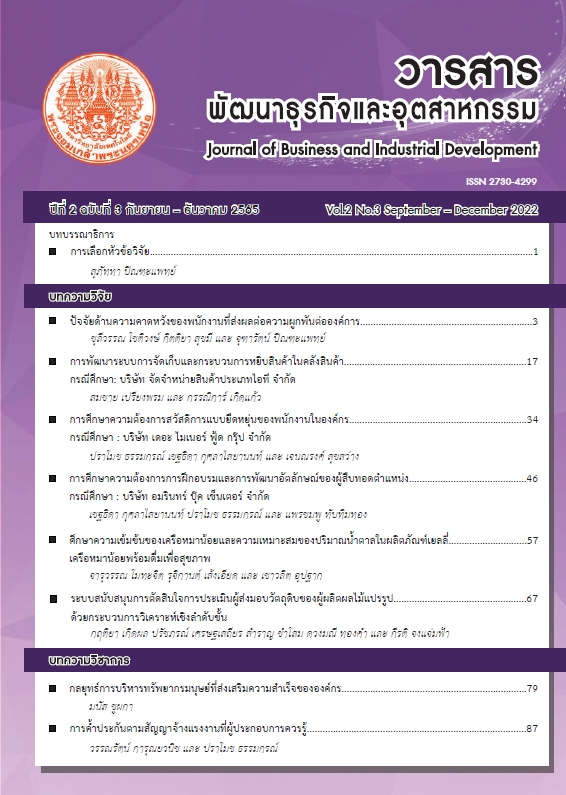Employers’ Need-to-Know Principles of a Guaranty and Suretyship Agreement
Keywords:
Guarantee, Employment contract, EntrepreneurAbstract
With regard to a suretyship agreement in employment contractual obligations, an Employer is entitled to demand or receive from an Employee a security deposit for damage to work or possible dishonesty done by an Employee. In accordance with the Labor Protection Act B.E. 2551, an Employer is entitled to demand a security deposit from the Employee to compensate for damage or losses only for the positions prescribed in the Ministerial Regulations. Values of the security shall be in accordance with the rules, which do not exceed 60 times of average daily wages payable to the employee. The contract shall be deemed void if surety's demand does not abide by the contract. Regarding a Guaranty and Suretyship Agreement, a third party or “guarantor” agrees to undertake suretyship liability towards the Employer (creditor), including satisfy repayment obligations based on the contract provisions. The guarantor must be given the Employer’s advance notice in case the Employee (debtor) fails to meet a required payment. The contractual relationship and obligations between parties must be in full compliance with laws. In the event of the Employer’s breach of employment contract, the agreement could be considered void. Any Employer who fails to comply with laws could face criminal penalties for the offense, including both imprisonment and fine.
References
ประกาศกระทรวงแรงงานเรื่องหลักเกณฑ์และวิธีการเรียกหรือรับหลักประกันการทำงานหรือหลักประกันความเสียหายในการทำงานจากลูกจ้างพ.ศ 2551. (2551, 4 กรกฎาคม).ราชกิจจานุเบกษา. เล่ม 125 ตอนพิเศษ112 ง4. หน้า 10
วิจิตรา วิเชียรชม. (2564). คำอธิบายกฎหมายแรงงาน (พิมพ์ครั้งที่ 8). วิญญูชน.
smartdeka. (2562). คำพิพากษาศาลฎีกาที่ ๒๗๘๒/๒๕๖๐. Smartdeka. https://www.smartdeka.com/
อานนท์ ศรีบุญโรจน์. (2565) กฎหมายประกันด้วยบุคคลและทรัพย์ค้ำประกันจำนองจำนำ (พิมพ์ครั้งที่ 8). วิญญูชน.
สำนักงานศาลยุติธรรม. (2563) คำพิพากษาศาลฎีกาพุทธศักราช 2562 เล่มที่ 12 (พิมพ์ครั้งที่ 1). สำนักงานศาลยุติธรรม.
สำนักงานคณะกรรมการกฤษฎีกา. (2468, 11 พฤศจิกายน) ประมวลกฎหมายแพ่งและพาณิชย์. krisdika https://www.krisdika.go.th/librarian/get?sysid=567410&ext=htm.
สำนักงานคณะกรรมการกฤษฎีกา. (2515, 16 มีนาคม) พระราชบัญญัติคุ้มครองแรงงานพ.ศ 2541. Senate. https://www.senate.go.th/assets/portals/28/fileups/146/files/พรบ.คุ้มครองแรงงาน%20พ.ศ.2541_1.pdf.
Downloads
Published
How to Cite
Issue
Section
License

This work is licensed under a Creative Commons Attribution-NonCommercial-NoDerivatives 4.0 International License.





